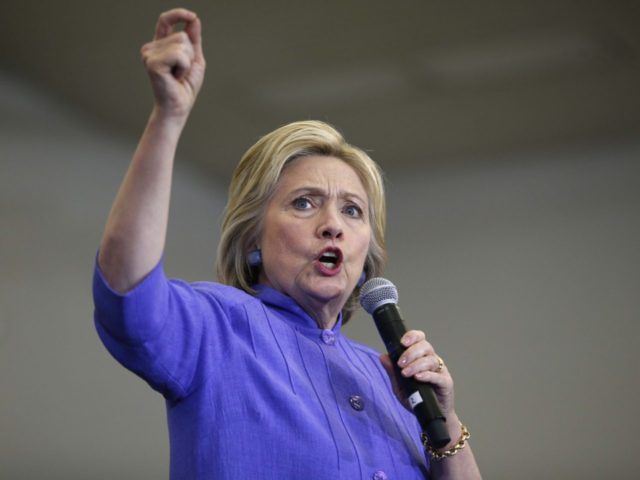Hillary Clinton’s reputation is slipping with Democrats, while Donald Trump has seen his standing with Republicans improve, according to a new study from the Reputation Institute, a global business consultancy.
The Institute’s “Presidential RepTrak” index measures the reputation of Clinton and Trump, drawing from voters’ perceptions of the candidates on multiple individual characteristics and policy prescriptions.
Clinton’s standing with Democrats has slipped since last month, with her overall reputation falling to 66 in the RepTrak index, from a high of 70.8. Trump’s reputation among Republicans has risen steadily since March, as he clinched the Republican nomination. His overall reputation among GOP voters has climbed from a weak 43 in March to 53.9 in the June RepTrak survey.
While solidifying their reputations within their own parties, both Clinton and Trump have very poor reputations with Independents. Any positive perceptions voters have of Clinton are driven by their estimates of her policy positions, while Trump’s positives are driven by his leadership qualities.
“If this is a race based on policy, Clinton wins,” said Stephen Hahn-Griffiths, US and Canada managing director of Reputation Institute. “If it’s based on personality, Trump wins,” he said.
In the broadest sense, RepTrak, by evaluating a candidate’s reputation, measures their brand. Most polling asks whether or not a voter has a favorable impression of a candidate. This single, binary choice gives a snapshot of voters’ perceptions, but not real indication of the strength of feeling or, even, its importance. By measuring a candidate’s reputation, though, RepTrak can gauge “the emotional connection consumers have to a brand.”
The higher a brand’s reputation with voters, or consumers, the more likely a person is to buy a product or service or recommend that brand to others. While this is important for companies, it is particularly relevant for political candidates. The most powerful resource of any campaign is individual voter contact with family, friends and colleagues. The higher a candidate’s reputation with voters, the more likely voters are to be advocates for the candidate.
The Institute’s RepTrak index measures a candidate’s reputation by evaluating the “U.S. general public’s perceptions of the candidates’ platforms across seven reputational dimensions: economic growth, national security, education and innovation, global relations, health and wellness, social investment and executive leadership.”
In short, RepTrak breaks down “why” voters feel a certain way towards a candidate, which can be more predictive of election outcomes than simple “favorability” measurements. In New York State, for example, Vermont Sen. Bernie Sanders was viewed as far more “likeable” than Clinton. On the issue of “executive leadership,” though, Clinton had a decided edge over Sanders among Empire State Democrats. Clinton won the Democrat primary in New York handily.
In looking at the “seven reputational dimensions,” Clinton scores high with Democrats in each issue area, but is dragged down by perceptions of her personal qualities. Clinton’s overall reputation with Democrats directly rises and falls with their beliefs in her honesty.
Trump scores well with Republicans on economic growth, national security and executive leadership. He scoress less well on education, health and social investments. The upside for Trump is he has the ability to improve in these areas as a fleshes out his positions and platform.
Both candidates have poor reputations with Independent voters. Just one-in-five Independents say they will “strongly support” either candidate in November. According to the study, “the characteristics that respondents associate with Trump are arrogant, extrovert, ambitious and authoritarian.” Trump “must work on adopting more positive traits to add to his brand persona,” the study concludes.
Clinton, though, is perceived to be “ambitious, but also arrogant, snobby and controlling.” Only 52 percent of Democrats perceive Clinton as “honest and trustworthy.”Again, Clinton’s overall reputation, even with Democrats, is contingent, to a large degree, with voters’ views of her honesty.
The Presidential RepTrak index, which is being released monthly, is a useful measure for evaluating the roller-coaster of the general election campaign. Presidential candidates are closer to brands than a collection of individual policy prescriptions or proposals.
Clinton’s brand is helped by voters perceptions of her attributes in specific policy areas, but hurt by questions about her personality and, especially, honesty. For Trump, the opposite is true. He scores best when voters evaluate him as a leader, but poorer when judging him on specific issues. His weaknesses can likely be fixed. Clinton’s task is more difficult.

COMMENTS
Please let us know if you're having issues with commenting.